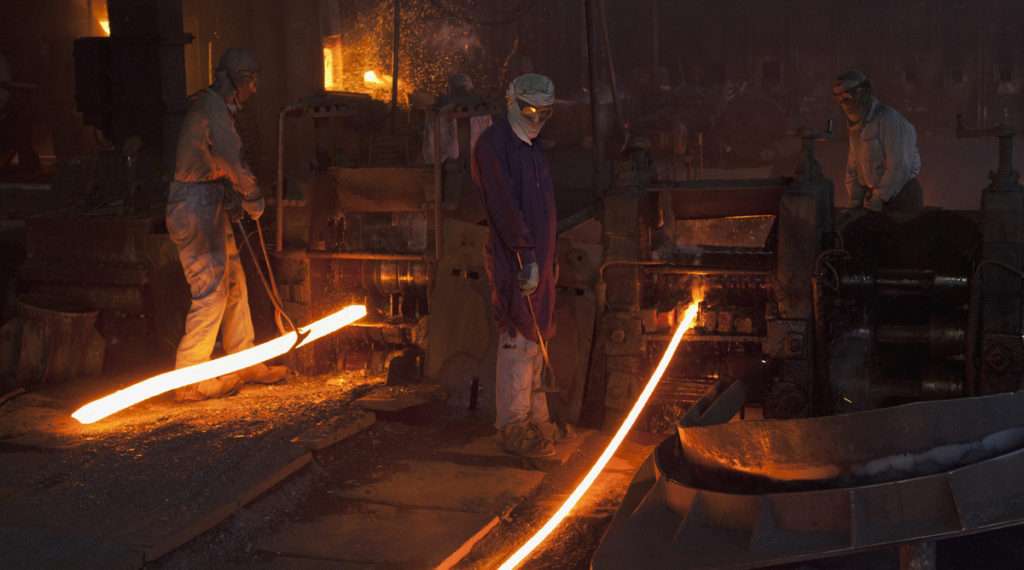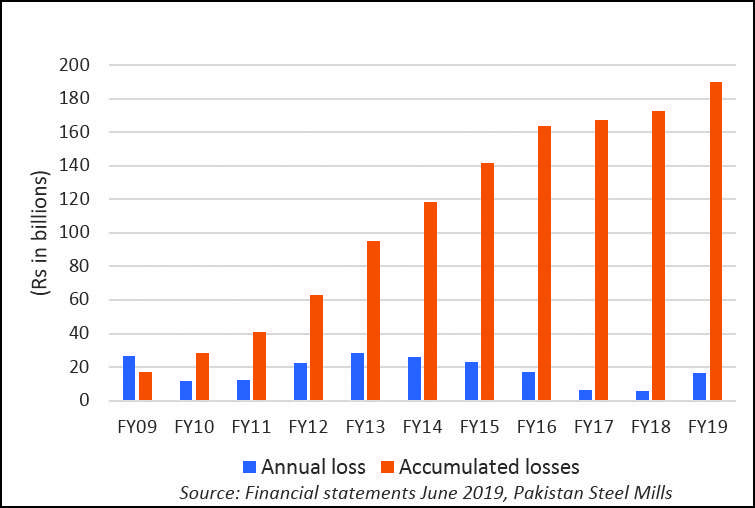How a steel mill steals our money?
Ali Salman
PSM has received staggering Rs334b from taxpayers’ money over past 15 years

ISLAMABAD:
Over the last 15 years, Pakistan Steel Mills (PSM) has got a staggering sum of Rs334 billion from Pakistani taxpayers.
Financed by the public, it has suffered accumulated losses of Rs189 billion since 2009, received Rs90 billion in bailouts and Rs55 billion in salaries since 2005. For the last 11 years, it has generated zero profit.
After peak capacity utilisation of 93% in 2007, it plunged and never crossed more than 15% of utilisation. While it has more than 9,000 employees, its contribution to the industrial development of Pakistan has been nil over the last five years. The mill was shut down in 2015.
At the outset, the Pakistan Tehreek-e-Insaf (PTI)-led federal government deserves accolades as it has not only revived the privatisation programme but is also undertaking probably one of the most difficult transactions ie PSM sell-off.
The most important rationale for privatisation, in the cases where private sector substitutes exist and trade is open, such as PSM, is to cut down wasteful expenditures and losses, which eat into taxes.
If a private sector entity reports losses year after year, it is closed. However, when a government entity reports losses, it is given more budget. This is what has happened in the case of PSM. It is almost as if failure has a reward.
According to a report, by privatising PSM, the government would be saving Rs700 million each month. That money can alternatively be utilised for more productive purposes such as healthcare, education, job creation and investment in water and energy sectors that can yield long-term benefits for the people and the economy.
The government has approved a retrenchment package of Rs20 billion to lay off half or over 4,500 PSM employees to help them. It will ease the recurring financial burden on the government and make the enterprise viable for privatization.
This comes out to be Rs2.3 million per person on average. This money will not last long and by merely being employed by PSM over the years without doing any actual work, these employees may have become unemployable. Therefore, their logical action will be to go for collective action and gather political support for their survival. This situation certainly deserves a careful analysis. People rightly cite the ongoing pandemic and raise concerns about the timing of these layoffs.
However, there cannot be a perfect time for these decisions. Pakistan is under severe pressure from the International Monetary Fund (IMF) to cut down wasteful expenditures. Perhaps, the government should consider maximisation of benefits under the retrenchment package and can customise payments according to the capabilities.
Those employees who are willing and able to work in the industry should be provided with adequate training to increase their employability. Employees with some entrepreneurial attitude can be provided with cash grants to start a business.
And the bitter reality will be that many of these employees may just have to accept the golden handshake.
Will the closure of PSM affect the steel industry? The answer is clearly no. Closure of a factory, which is already shut for the past five years, can hardly be noticed. While PSM produced losses after losses, the private sector was busy in investing in the sector and producing more steel. We have developed a reasonable base for production of steel in the country over the last 10 years.
Whether the sustained losses of PSM and the rise of private sector investment are related is an empirical question and deserves serious research. I recall that Federal Planning Minister Asad Umar always claimed that once in power, the PTI would run state-owned enterprises efficiently through better corporate governance and professional management.
He was always opposed to privatisation. Consistent with his claim, he led the formation of Sarmaya-e-Pakistan Limited (SPL) when he became finance minister.
However, economic compulsions have led the government in a different direction. With PSM transaction, privatisation is back. SPL is gone. It is high time that the PTI rectifies its theory also.
The writer is founder and managing trustee of PRIME, an independent think tank based in Islamabad
Published in The Express Tribune, February 1st, 2021.
